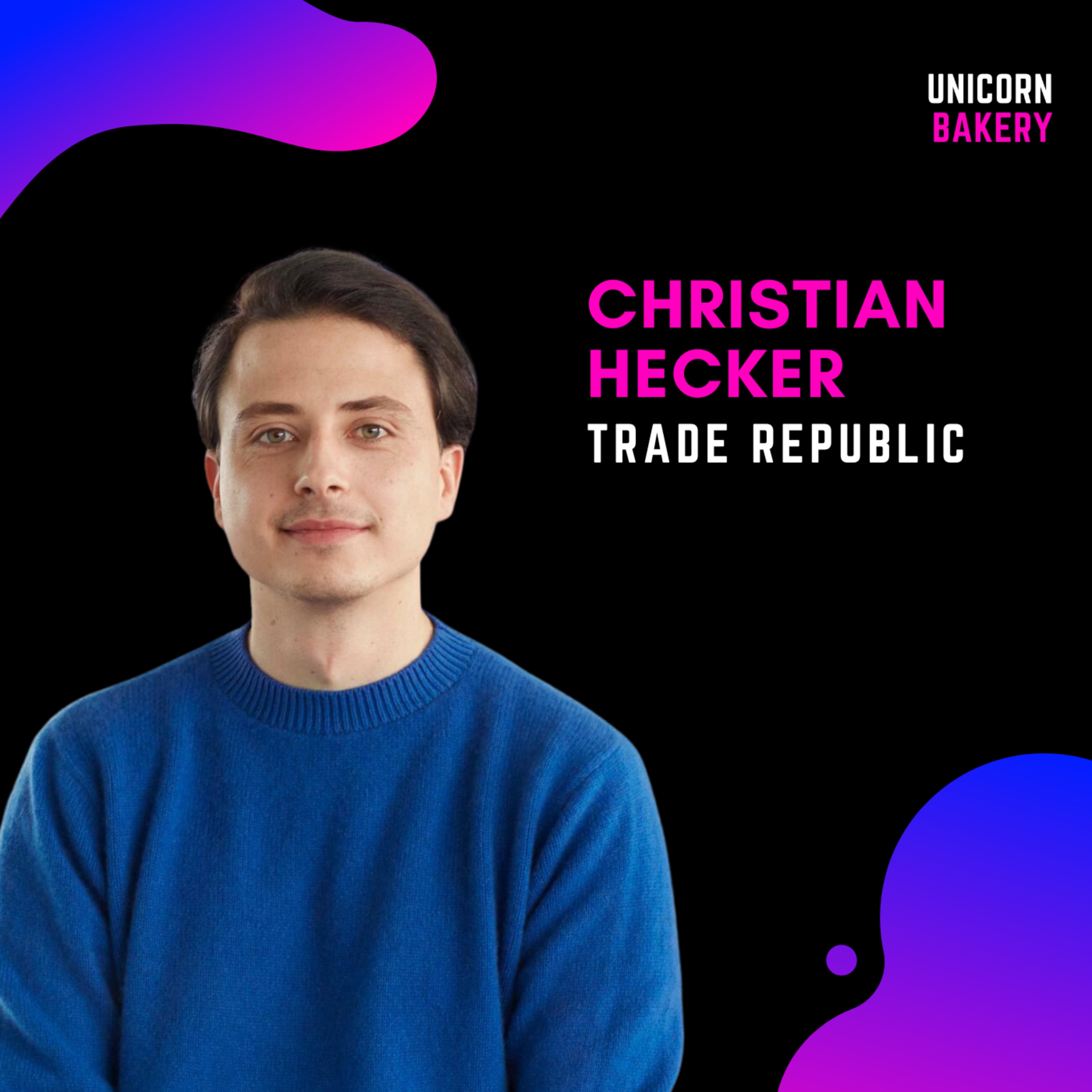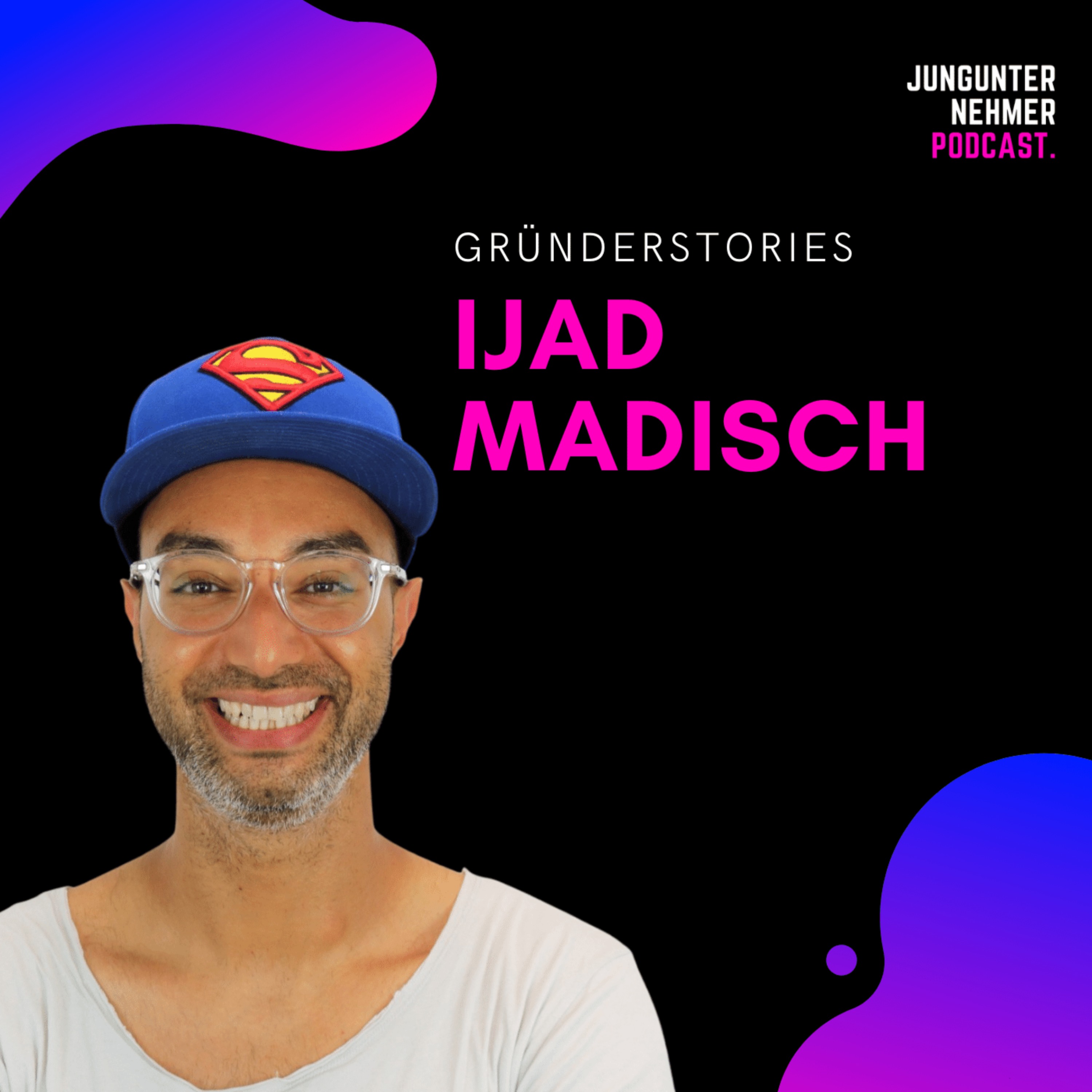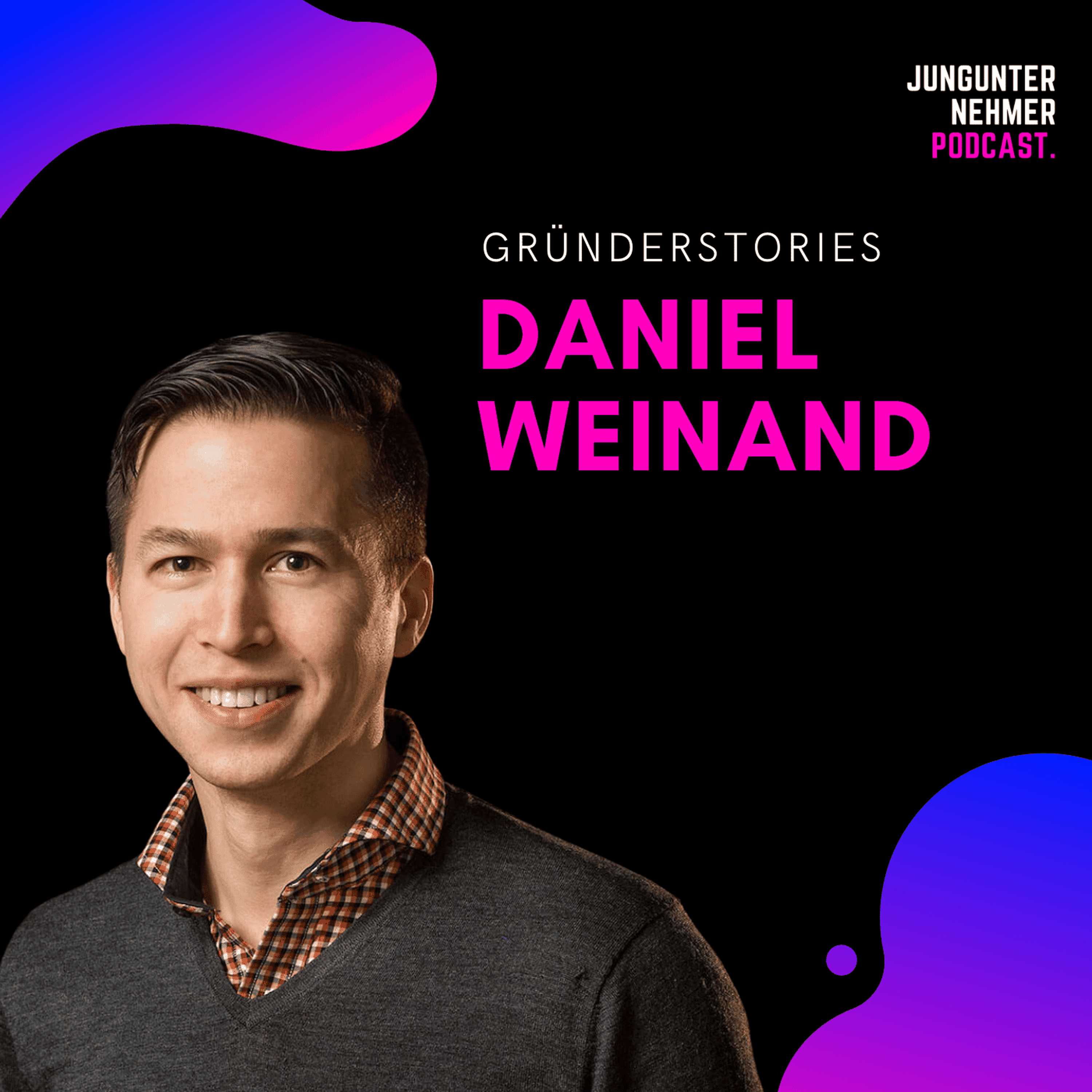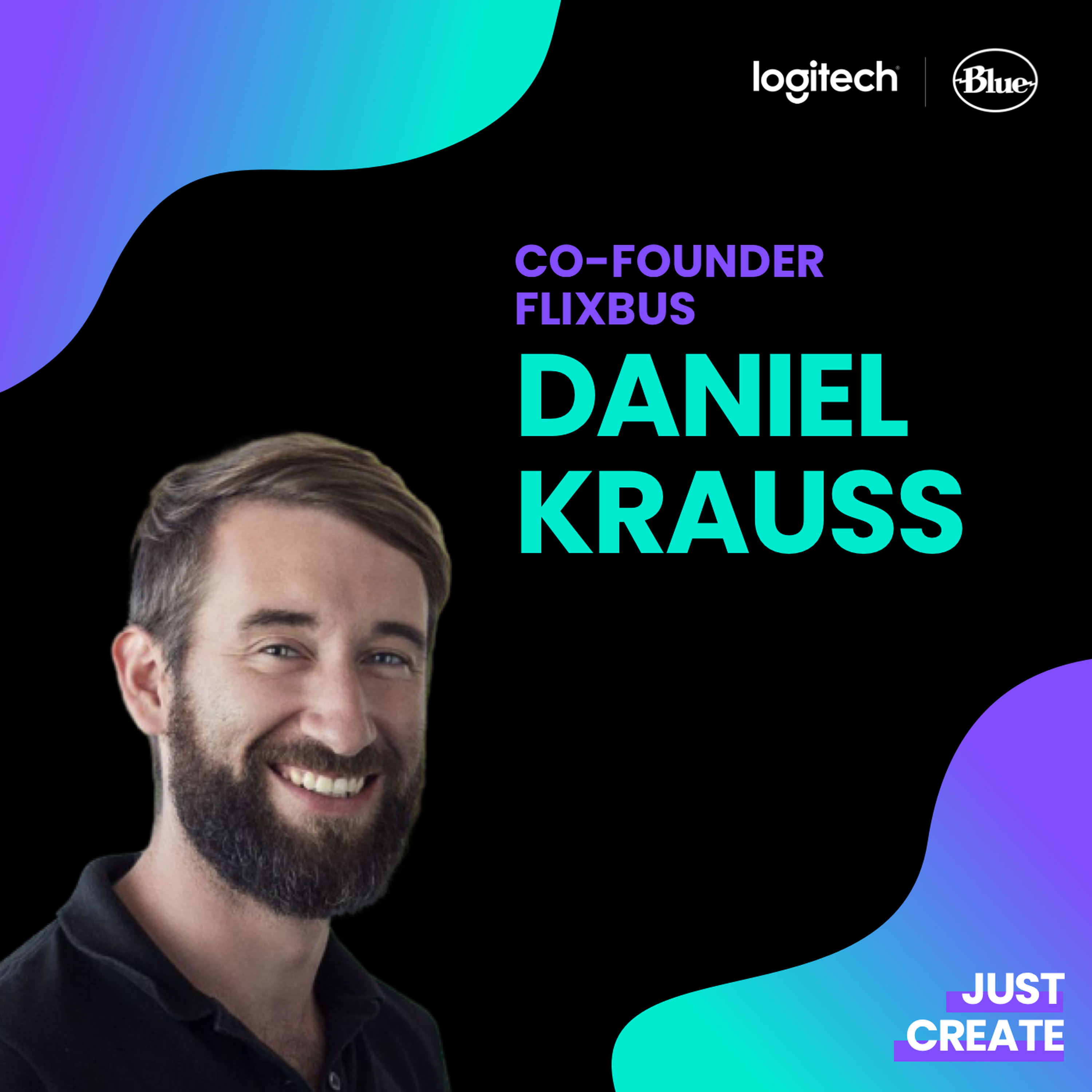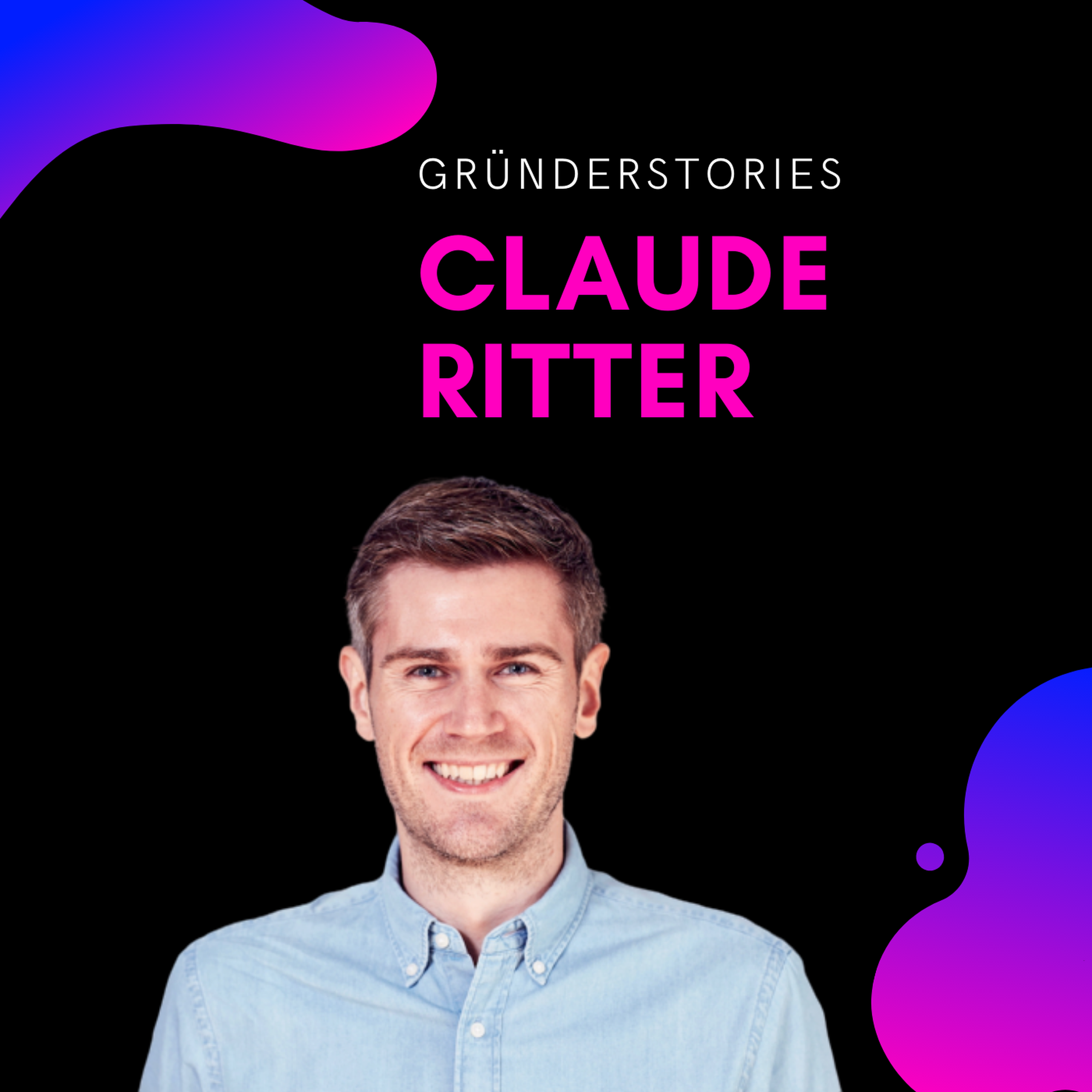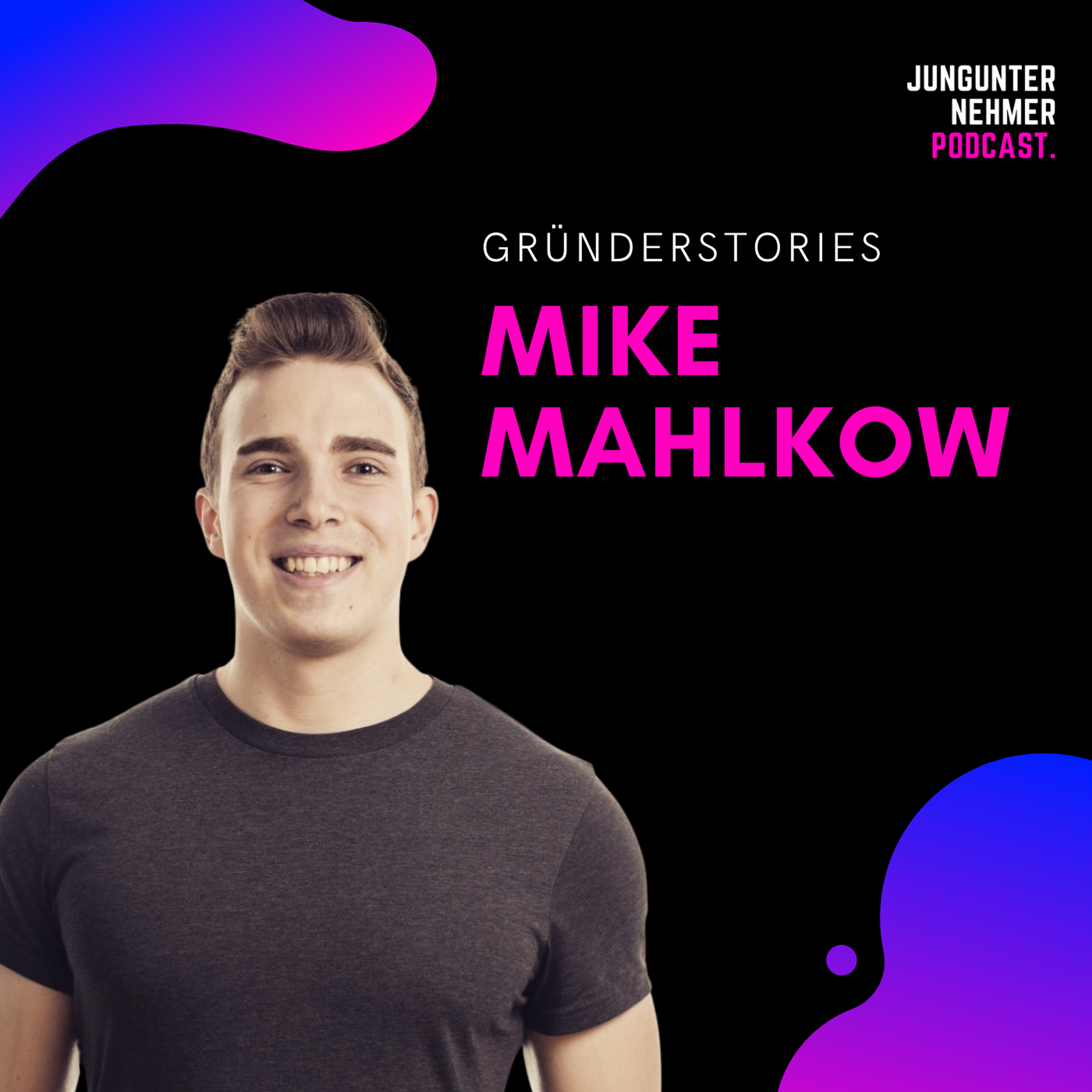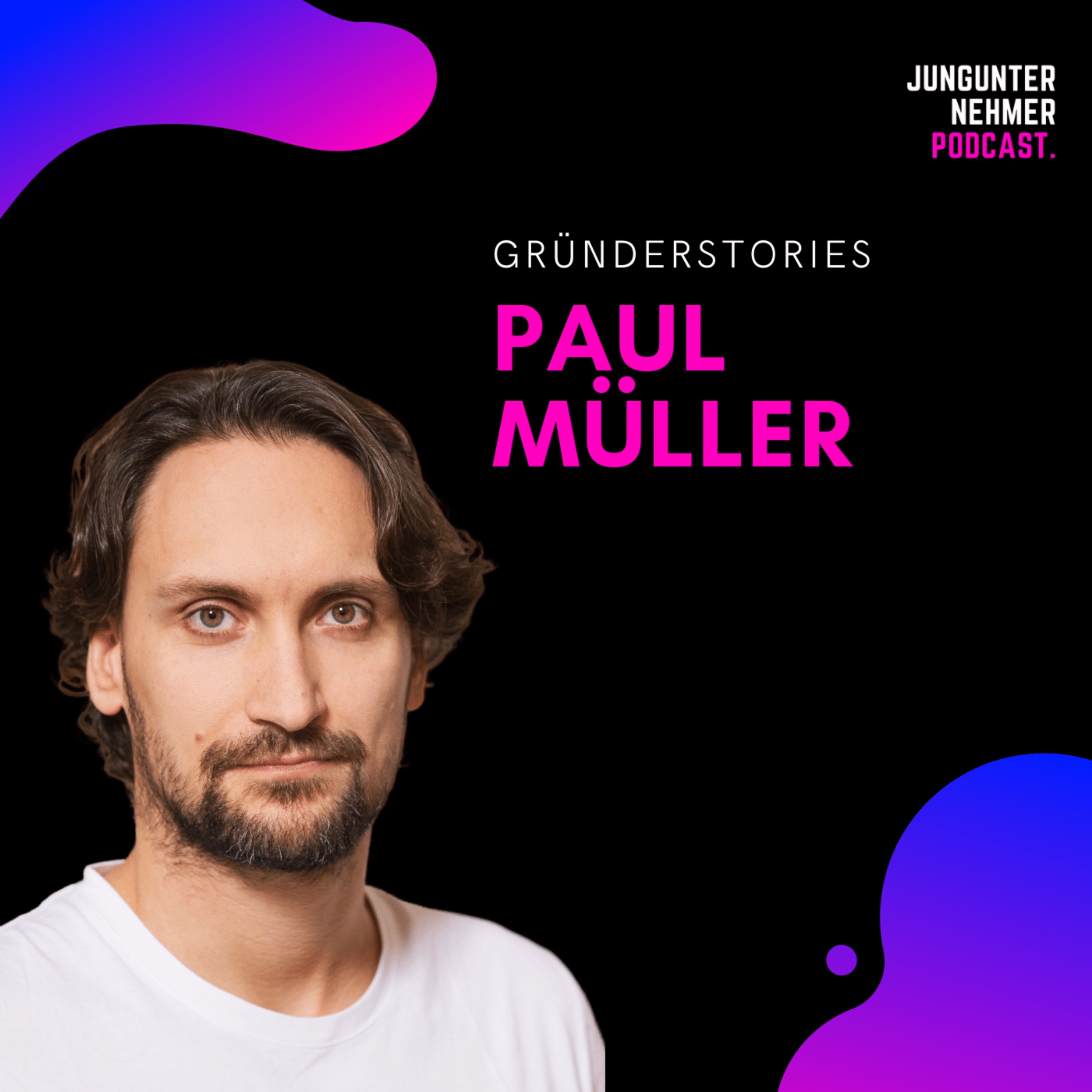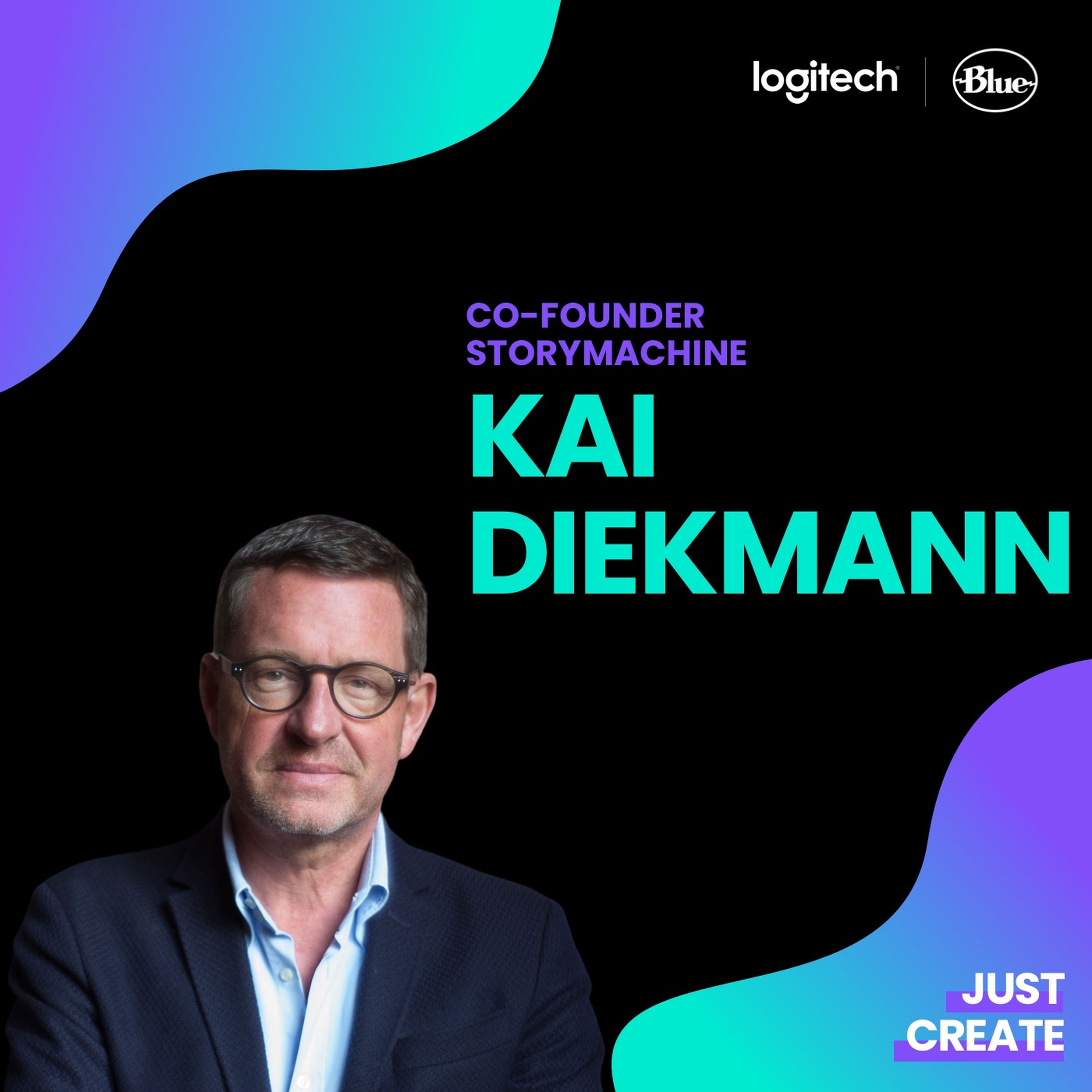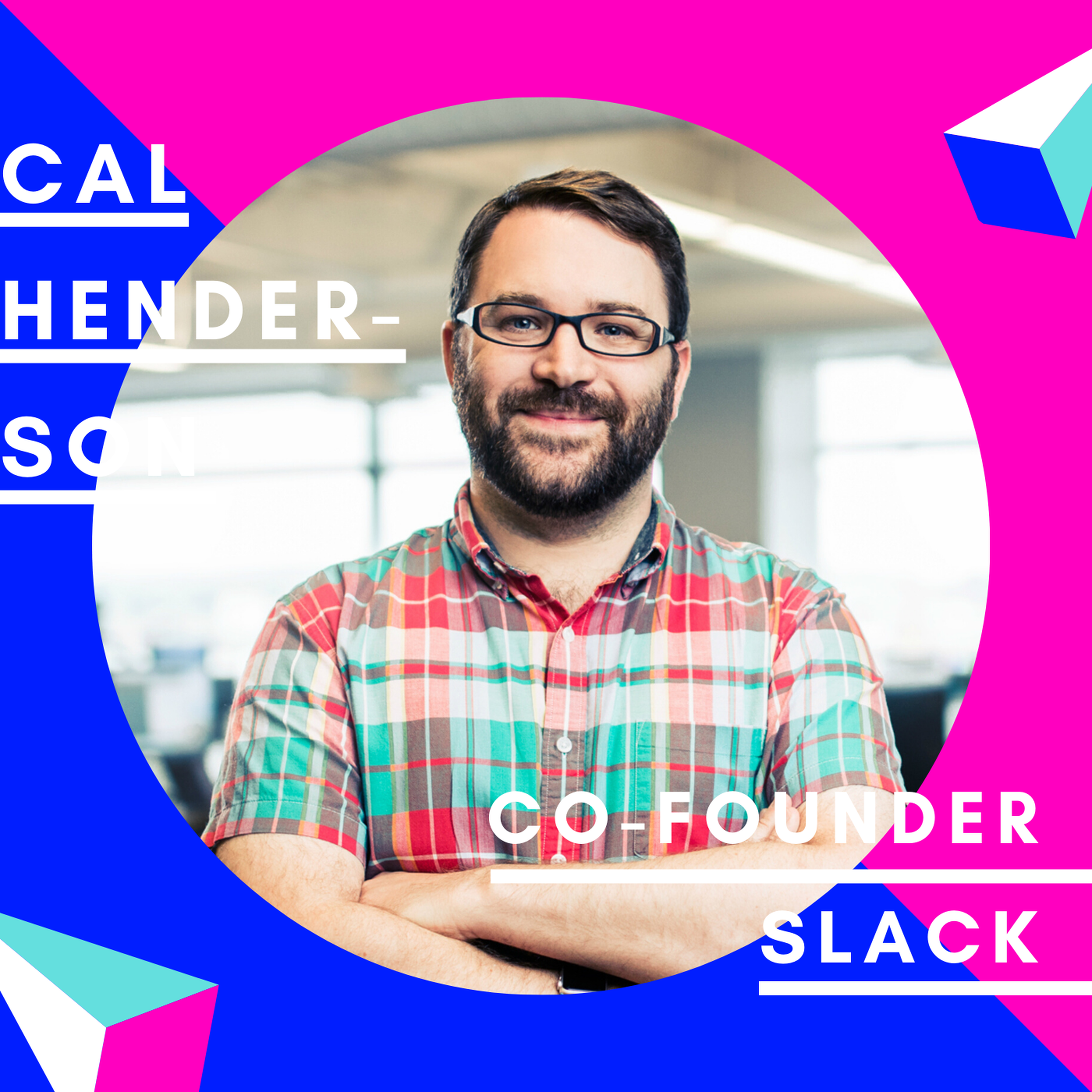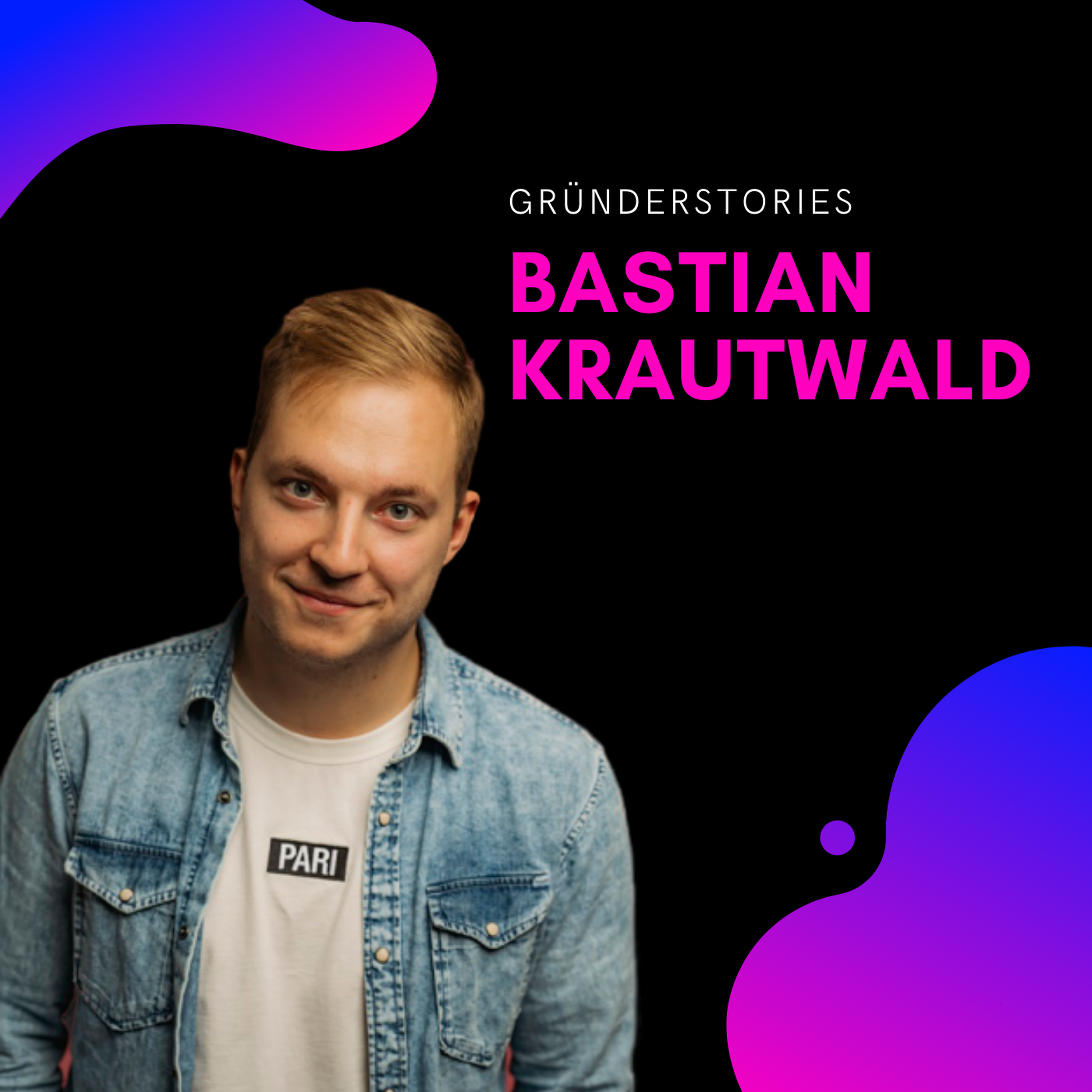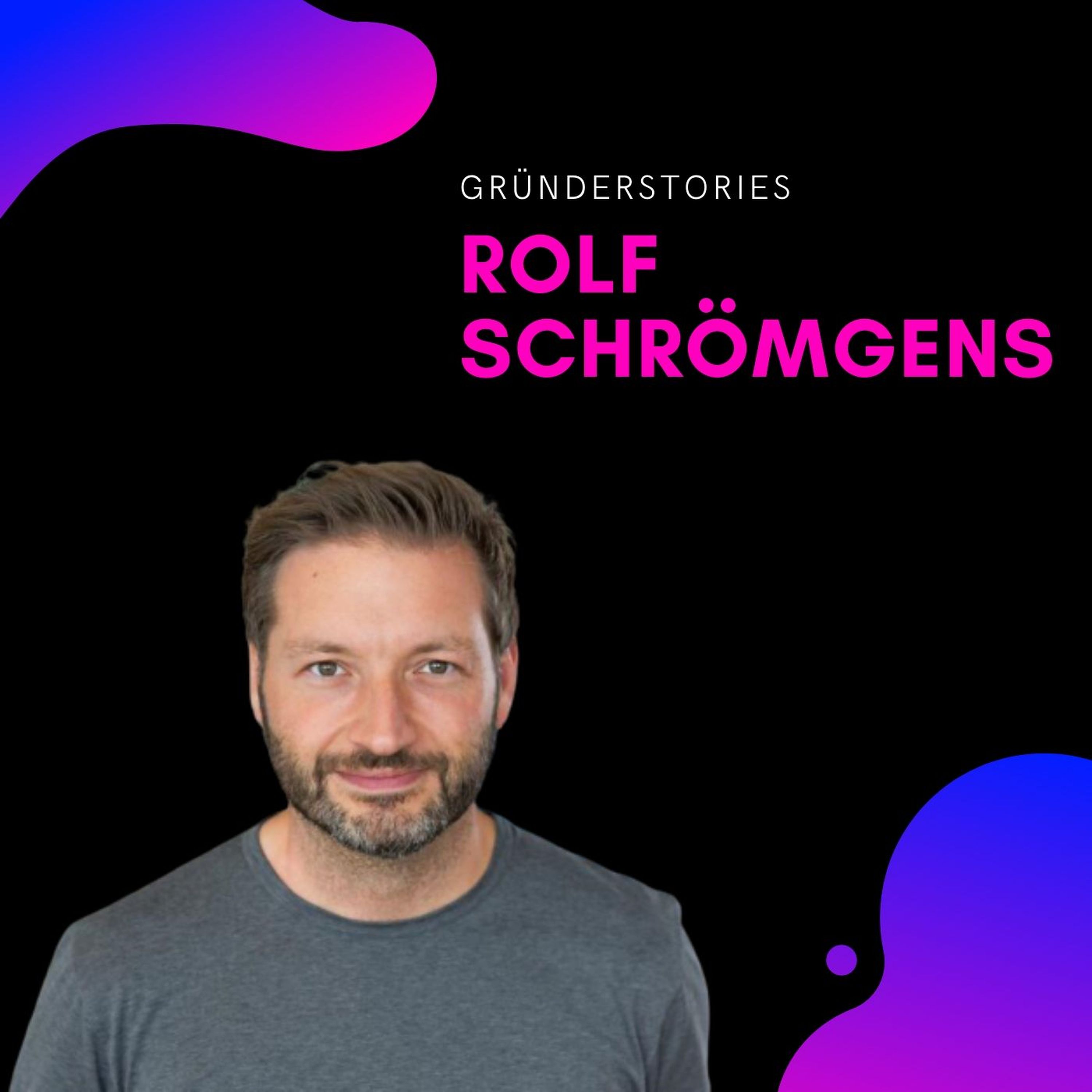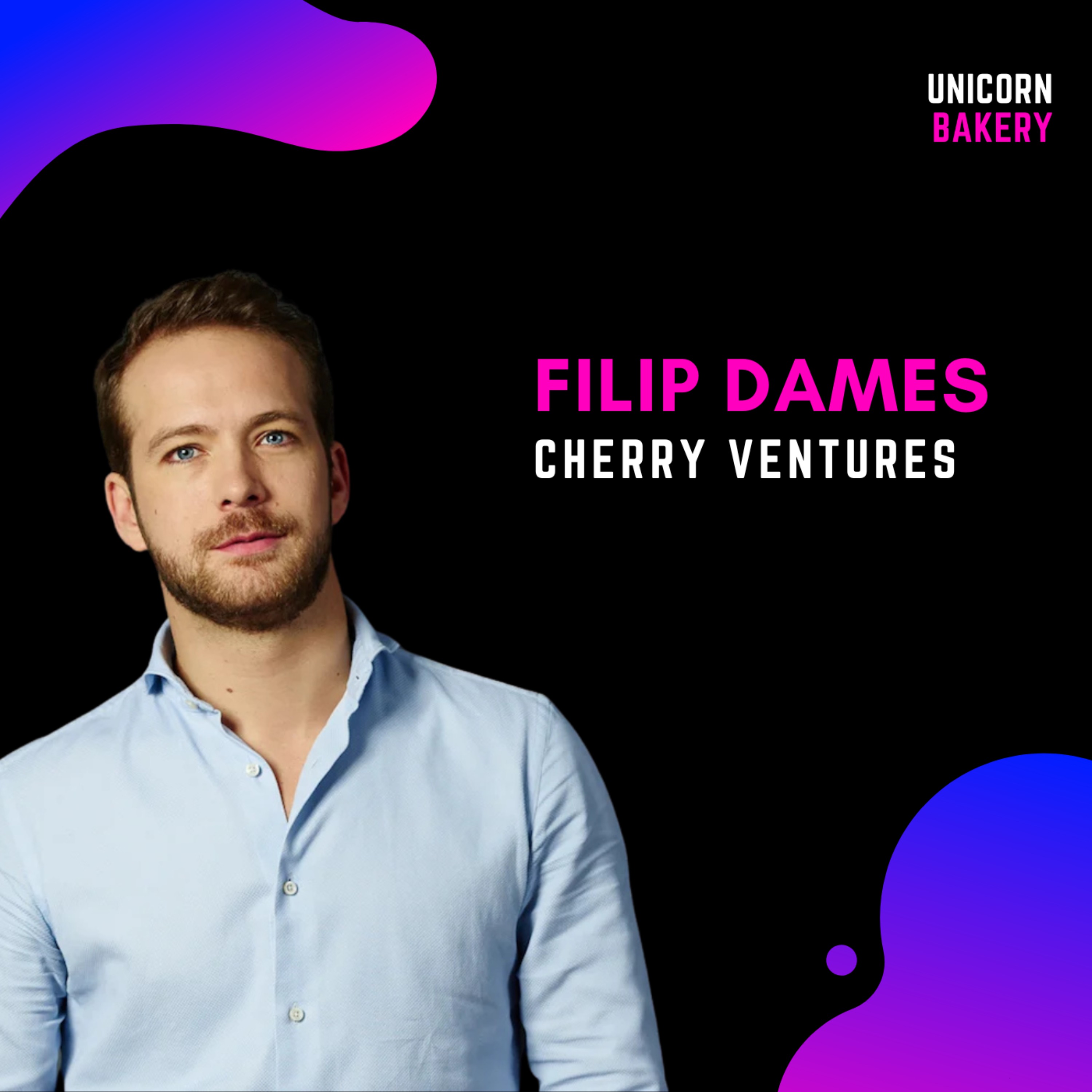Venture Industry: A Look at the Last 20 Years, Mark Sherman, Telstra Ventures
In dieser Podcast-Folge spricht Mark Sherman von Telstra Ventures über die Veränderungen, die in den letzten 20 Jahren in der Venture- und Startup-Industrie stattgefunden haben. Telstra Ventures investiert in Unternehmen mit einem Umsatz von 1 bis 10 Millionen US-Dollar und legt besonderen Fokus auf die frühzeitige Identifizierung vielversprechender Unternehmen und das Verständnis des Produkt-Markt-Fits. Sherman diskutiert auch den Einfluss von künstlicher Intelligenz auf die Branche und betont die Wichtigkeit, Trends aufmerksam zu verfolgen. Des Weiteren erläutert er, dass sowohl große Unternehmen als auch Startups von Technologie profitieren werden und dass es nach wie vor Möglichkeiten gibt, in die Branche einzusteigen. Sherman teilt außerdem Einblicke darüber, wie Telstra Ventures mit den Auswirkungen der aktuellen Marktbedingungen umgeht und wie Datenwissenschaft und die Schaffung eines Mehrwerts für Portfolio-Unternehmen eine wichtige Rolle spielen.
Was du lernst:
- Veränderungen in der Venture-Industrie in den letzten 20 Jahren
- Wie bleibt man im Venture-Geschäft 20 Jahre erfolgreich?
- Fokus auf Unternehmen mit einem Umsatz von 1 bis 10 Millionen US-Dollar
- Frühzeitige Identifizierung vielversprechender Unternehmen und Verständnis des Produkt-Markt-Fits
- Einfluss von künstlicher Intelligenz auf die Venture-Industrie
- Chancen und Möglichkeiten, in die Branche einzusteigen
ALLES ZU UNICORN BAKERY:
(0:00:00) Wie die Venture Branche sich in den letzten 20 Jahren verändert hat.
(0:02:42) Zukunft: Datengetriebenes Investieren
(0:13:40) Bedeutung von künstlicher Intelligenz
(0:22:40) Technologie als Chance für Unternehmen
(0:31:40) Die Rolle von Personalentscheidungen bei der Förderung von Innovation
(0:37:61) Kapitaleffizienz und aktuelle Trends in der Venture-Industrie
(0:41:40) Value-Add als Investor: Wie Telstra Ventures Umsätze für das Portfolio generiert
(0:48:27) Umgang mit Selbstzweifeln und Verletzlichkeit
Mark Sherman
LinkedIn: https://www.linkedin.com/in/markheyssherman/
Telstra Ventures: https://telstraventures.com/
WHATSAPP NEWSLETTER:
1-2x wöchentlich bekommst du eine persönliche Sprachnotiz oder Inhalte von mir, die dich zu einem besseren Gründer machen, melde dich jetzt mit einem Klick an: https://bit.ly/ub-whatsapp-newsletter
Hosted on Acast. See acast.com/privacy for more information.
Fabian Tausch:
Welcome to a new episode of the Unicorn Bakery. My name is Fabian Tausch and today we will have a look at the success recipe of Mark Sherman, managing partner of Telstra Ventures. Before becoming a managing partner at Telstra, Mark was a general partner at Battery Ventures. And I think it's a good indicator to look at the portfolio of the company Mark's building, Telstra's portfolio includes companies like Snap, Box, CrowdStrike, DocuSign and many, many more. So. A lot of interesting investments you guys did. You're typically investing Series A and later and there's a lot of stuff that we can cover. You're in venture for more than 20 plus years, so way more experience than most of the investors out there and especially for me as I'm in the European ecosystem that's lacking a bit and lagging behind. It's super interesting to hear your perspective. So Mark. Super happy to have you on the show. Welcome to the bakery.
Mark Sherman:
Great, glad to be here. Look forward to the conversation.
Fabian Tausch:
You're in venture for a while now, and I think I cannot ask something else as a first question than what are the biggest changes you experienced throughout the last 20 plus years?
Mark Sherman:
Well, I think the obvious... answer that is just that there's different technology cycles. So we're AI is very hot now. We've had cloud, we've had mobile, we've had web, we've had a lot of different trends. But ultimately, venture is all about consuming innovation and consuming new ideas. The thing that I would really say that's very different about venture right now is how we see the venture industry evolving in the next 20 years. And I think there's going to be two major that you need to be front-footed on in order to succeed as a venture investing platform going forward. And those two shifts center on how you source and what your investment process is, and then secondly, how you add value to the portfolio of companies that you've invested in. And we've had two big calls that are very important. One is around data science. And so for the last five and a half years, we've been embedding more and more data science into our investment process. And we've been seeing some really interesting results. And our thought is as a venture firm, if you're not instrumenting your investment process with data science in the next five, 10 years, you're gonna be left behind. The second bit is around how you add value. And, you know, in the beginning of the venture industry, you had money, which people wanted. And that's important. But I think over time, there has been more capital devoted to the industry. And as such, CEOs and founders have the luxury of choosing which firms they can work with. And so you have to have more special value add and in our case we generate revenue for our portfolio companies and it's a very hard dollar benefit and 99% of venture firms can't generate revenue for their portfolio companies and we can and then it's special. So coming back to your question I think you have to be front-footed on data science and I think you have to be front-footed in terms of the value that you're delivering to your portfolio companies.
Fabian Tausch:
What are the indicators and parameters that you're looking for when you're looking at the data science stuff you're doing? What do you want to examine from all the data to figure out what the next best deal might be?
Mark Sherman:
Yeah, so we focus on series A's and B's. And so our whole data science footprint is geared towards tracking seed and series a companies and it's interesting because data science doesn't really work at the raw startup level. So when you have a man, a woman, a dog, and a PowerPoint, there's not enough digital exhaust to track things, but as companies start to grow a little bit and have more people and have more web traffic and have more revenues, they start emit signals that you can track digitally. And we have 35, 36 different data sets that we've been... nurturing and collecting and cleaning for, you know, in some cases, five and a half years now that we have a bunch of scoring and algorithms on top that sniff for signals of momentum. And so it gives us ability to track companies that are starting to bubble up and inflect, but then also equally importantly, it enables us to go into spaces that have 10 or 20 or 30 and essentially score and evaluate the best ones. So we can very quickly, like within five minutes, say here are the three or four companies that we wanna spend all of our time on evaluating when we're looking at the companies that are coming into our pipeline. And that basically allows us to save a ton of time. So ultimately we can respond to the entrepreneurs more quickly, but then also be more efficient in terms of where we allocate our time for.
Fabian Tausch:
I think one thing is having the pipeline that you describe through the data, but then also not only wanting to do the deal and want to understand more of the deal, but also getting it. And I imagine, like, how can I imagine, like, how early do you try to talk to promising ventures? Because I'm not sure if, from my perspective, and I don't know if that's right or wrong, but... I would think if you want to invest in, let's say, Series B, it would not be enough to say, hey, we heard you're raising your Series B right now, let's talk, we want to be part of the race. I think it's also about knowing early enough when to start talking, but that's just my thought.
Mark Sherman:
Yeah, we want to talk to great entrepreneurs. as early as possible because we want to build a relationship with them. We want to get to know them as people. And we want to be able to track and understand their businesses over long periods of time. So that's sort of one statement. If I was to calibrate it a different way, typically we're investing between $1 million and $10 million of revenues, ARR, bookings, you know, which are all related but slightly We don't get too fussed about which one of those, the company is their key benchmark, but that's ultimately when we're looking at them. And we are almost always investing post-revenue. So we want to generally talk to companies when they have hundreds of thousands or maybe a million dollars of revenue, just to get an understanding of what they're doing. And basically, Fabian, the method behind the madness is we're really good at investing investing in companies when they're just starting to get the feeling of product market fit. And that product market fit generally is coming after they've had some customer interactions that are revenue bearing. And we can understand how close they are to getting to a cookie cutter customer relationship that means they can scale to a hundred million dollars in revenue and beyond. And so, you know, one is we want to talk to great people. early, but then secondly, it's usually when there's wisps of revenue that we're looking for.
Fabian Tausch:
So the question here is how do you define product market fit? Because when I do whatever investor I talk to can be even seed or earlier Sometimes people are like yeah we're looking for the first signs of product market fit and I just Realized that there are different phases of product market fit in how people define it and figure out for what stage, what part of product market fit is needed. So what is the definition and hypothesis of product market fit you are working with for your investments?
Mark Sherman:
Well, I think humorously, almost all of the founders that we talked to. say that they have product market fit. And then to your point, there are various shades of gray in terms of what that looks like. Ultimately, what we would love is where the customer is defined, the problem is defined, the value proposition of the customer is defined, the competitive set is defined, and we can start to understand the magnitude of the market size. And so it's all those pieces of the puzzle starting to link up. Generally, most of those pieces are a little bit fuzzy or somewhat defined. And so the work that we're doing is trying to understand how clear each of those pieces can become. And so one of the things that we find works really well is, you know, for a company that we like a lot, starting to introduce them to other people. And as I mentioned, the value add of being able to introduce companies to prospects and customers is a great way of understanding whether there is closer and closer to kind of true product market fit. So as an example, we invested in a cyber security company in February and The company was doing very well. We thought it had product market fit. We have a lot of connections and relationships in Australia. And the CEO was heading to Australia. He had set up a couple of meetings. We helped him set up a number of others. And within three days, he was meeting with 36 Chief Information Security Officers, CISOs. And some of those were lunches with two or three people and whatnot. But we thought, geez, if this is a company that can get on the calendar of 36 Chief Information informal signal that there's real pain here and that the company has a solution that could solve that pain that is a high priority for chief information security officers. So that's an example of how we would, you know, look to soft signals that there might be product market fit.
Fabian Tausch:
Fair enough. And one other thing that is a bit away from the investment, like when are you making the investment, but you said that we have different technology cycles in the whole venture ecosystem. How does the trend of AI, for example... also affect your investment strategy and investment hypothesis? Like how much should an investor like can be a newly investor but can also be like how much do you have to follow the trend to also be a successful investor?
Mark Sherman:
I think ultimately you have to be a great student of these trends to understand whether they will make for good investments because the trends are understanding the technology shifts, understanding how they satisfy the customer needs. and understanding how big those needs are over time. And so I think it's very uncommon for venture investors to do well by one-off opportunistic investing. I think they have to have a good understanding of what the fundamental technology shifts are in order to be a good investor. So it's kind of like, do you wanna be lucky or smart? I think I'd much rather be smart about some of the spaces that are bubbling up. AI is a very interesting one because artificial intelligence has been around for decades. When we look at our portfolio companies, many of the portfolio companies have been using artificial intelligence on their marketing automation side. Many of the portfolio companies, particularly in cyber, have been using machine learning and artificial intelligence to identify phishing and malware and ransomware. attacks for probably a decade. And so AI has been pervasive in our portfolio for some time. It's become very popularized because on the 30th of November, ChatGPT was launched. And so now, Fabian, you and I can talk with our friends and family. I can talk to my 19-year-old son and 21-year-old daughter about what's going on in the world consumerized in ways that are very conversational. And in some respects, I think it helps to just... illuminate and amplify how artificial intelligence technologies are going to pervade our entire software stack. And you know, I think we're big believers in the, you know, Andreessen software is eating the world. And now the kind of related concept is artificial intelligence is eating software. And so we just think it's fundamental. And in some markets is going to have, you know, many multiples in terms of impact relative to, you know, traditional software. software and digital related technologies.
Fabian Tausch:
So to turn it upside down, if I would translate that to being a founder, I should have a clear look at all these trends and like understand what I think, how they can impact my business. Like my running business or the new one that I want to found. I don't always have to jump on trends to on the one hand get funded, but also build a successful company. But I have to be on the lookout. And sometimes it can be that I might get disrupted by a new technology. And I have to be aware of that and think, okay, how can I disrupt myself to make it work or that I have to understand, okay, some of these parts can be relevant, but are not proven yet, let's say a lot of the that we've seen throughout the last years is still taking way longer in adoption than a lot of people might have thought. So I have to decide, do I want to jump on the train right now or do I still wait until it's really moving that fast that I say, okay, I will have to figure out how we implement it in our core strategy.
Mark Sherman:
Yeah, I think as a founder, authenticity is important. And I think either you want to... truly understand an emerging technology really well. So something around large language models would be an example in artificial intelligence. Or on the other hand, you want to really understand customer pains and customer needs really well. And ideally, if you can understand both of those together really well, that's where you get great founder market fit in terms of where things are going. And I think... The one thing I would disagree with how you sort of set it up is, is do you wait for a trend to happen to jump on the train? I think oftentimes that's almost too late. And, you know, ultimately what we're looking for are founders that can kind of see around corners that can anticipate, you know, where the trends are going and be ahead of that game in building product and in building customer relationships that are really interesting.
Fabian Tausch:
I'm totally with you. What I meant with jumping on the train is more a, if I decide that the technology is not ready yet to implement, then I might wait to see if the implications are really becoming true and are worthy thinking about to then think about implementing. And that's what I meant by waiting until the train is arriving and to jump on it. But I think
Mark Sherman:
Got
Fabian Tausch:
we're
Mark Sherman:
it.
Fabian Tausch:
quite on the same page here.
Mark Sherman:
Okay, makes sense.
Fabian Tausch:
I had an interesting conversation today about, for example, OpenAI, so that we will see the biggest... What we see is a lot of layoffs at the moment, and we will see a lot of people switching or leaving the startup ecosystem because they might not get their jobs back soonish. But at the same time, we also do to... development of artificial intelligence could see the biggest wave on unemployment because of tech, because Chetch GPT is super smart already and might not... we always thought that machines and artificial intelligence and everything might start, let's say... unemployment, the people like, could be that machines are faster in like, as cashiers, like how, for example, Amazon has a store without any person working to check like if you had all your if you paid all your stuff, compared to chat like open AI and artificial intelligence are now enabling to also substitute knowledge workers, and especially in a field where it's more, hey, you have like, could be support, could be account executives, could be customer success in a part. And how do you think about that development? Because it's, like, it can be super amazing to build something that's then helping to to make things more efficient, because if startups could reduce their headcount, because they don't, as an example, they don't need account executives anymore, they could become way more profitable and at the same time you have a lot of people... that are unemployed, how do you think about such technological developments and how do you assess them when you look at the technology to understand what are the implications if that really becomes that huge and if that develops further and as exponentially as it does right now? Very long question, I know.
Mark Sherman:
No, no, no, I think it's an excellent question. And I guess the way I look at it is there are a number of generalized models that are expensive to manage and train. And it depends a lot on where you think the value in artificial intelligence is going to be driven. And I think a lot of the value will be driven around proprietary data sets. And so interestingly, I think that a number of the startups that are laying people off, those people may end up in large, more traditional. Fortune 500 global 2000 companies because you know some of these companies have been around for decades if not centuries and oftentimes they have large data sets that have been Less well explored and so the opportunity could be you know Barclays or McKinsey or Walmart in terms of applying AI technologies to their data sets. So I just happened to see recently that the Chief Operating Officer of Barclays was talking about the layoffs at Meta and Google and other technology related companies and saying that they were really excited about it because it generation of banking. And then, you know, McKinsey has a study that says all companies are going to become software companies and that there's six things that you have to do to transform yourself from a traditional company to a software company. And then, Walmart, I saw a senior vice president around in their e-commerce ordering process, and how if you've ordered diapers for a baby, they track the last order time relative to this order time, because potentially the sizing could be different. And so they could recommend, you know, Fabian, your baby is X degrees bigger. It's more likely you'll need the next size up so that they have a better customer experience and then lower costs in terms having less returns because they get the baby's diaper sizing right. So it's a super long way of answering your long question with a long answer that basically says, I don't really worry about the layoffs because I think that this technology is gonna be, you know, pervasive and is gonna need to be consumed by lots of different people and big traditional people just as much as, you know, interesting emerging startups as well.
Fabian Tausch:
Absolutely. And I always thought that okay, the first layoffs that we saw last year, for example, is just a also shifting people from A to B and like free setting a lot of amazing people who were in startups that are just sometimes overfunded, sometimes kept alive even when they should not have been. But at the same time, now that everybody's laying off, it's also super hard to get back into. And at the same time, if you're then having new technology approaching that might make the entry-level jobs harder to get or at least or even obsolete, it gets harder and harder to understand for me how the... world might change and how we cannot grasp how it looks like in 10 to 15 years and what is needed as a general like it's not a And it don't get me wrong. It's definitely not a scenario of like, oh, everything is getting so bad It's more a scenario of like how could it change and how can people be aware of that or? Also prepare for for change that might happen so that because if let's say at some point customer support is not a how is it called, an intercom anymore? And then sometimes you have to ask a support agent, but it's more a chat GPT that really understands all of the documentation better than most of the customer support agents. Like why would I, beside of like, why would I need as many customer support agents? And these are often a entry level job that is then heading to, let's say, customer success, because I know the product well enough or stuff like that. So how do people that also want to get into the ecosystem at some point still make that happen. It's so interesting, thinking if it's, and that's unclear and I'm aware of that, but how it might change how we perceive making a career in the next years.
Mark Sherman:
Yeah, so I think, you know, in the end, the consumption of technologies hurts some jobs, but helps others. And so there's an interesting study that talks about, you know, the decline of bookkeepers because of the absorption of spreadsheets. But the... the acceleration of financial data people and then financial analysts exploded. And so while one ramped off, others were accelerated by the consumption of spreadsheets. And I think that we don't really know where all the customer service, I agree with your premise that customer service representatives are probably gonna get replaced by time, but there's going to be tons of other jobs that they can get involved with that are, you know, similar but different and, you know, those could be customer service in the absorption of climate tech. And so, you know, we need to roll out tons of solar and tons of wind renewable energy suppliers, you know, over time. And so maybe answering telecom related questions may not be the best thing for these customer support representatives, but maybe they can actually act as support representatives in terms of solar, or they can maybe work with implementers downstream. So, you know, when, you know, when a door closes, a window may open on the other side. And so it's just, I think, important to keep in mind that it's not kind of just zero sum. There's always other things that are, you know, creating and evolving and creating new opportunities for people and just to be mindful of that.
Fabian Tausch:
Fair enough, I don't want to get stuck in this topic, I just thought about it. I can imagine that a lot of your portfolio companies also struggle with the current market conditions and struggle in a way that it's affecting a company in every way and they have to re- assess where they're currently at and what they have to develop as an action plan to move forward. What are the topics that you're working on with your portfolio often throughout the last months?
Mark Sherman:
Yeah, so I think with a number of our portfolio companies, you know, we're working through what the environment means and encouraging themselves to be geared conservatively. When we have, you know, interest rates are, you know, high and going higher as of yesterday, and inflation is still not, you know, totally under control. It creates the opportunity for recession and sort of slowdown. And so I think some of our companies have been seeing, you know, stretching out of sales. cycles, budgets being cut, renewals being downsized. And so we're kind of working through those with a number of our portfolio companies. And what that means in English is looking towards some rationalization and some cutting of headcount just to make sure that they have enough cash to do well for the long term. employees, we've had companies that have laid off 10%, you know, and some that have laid off 20% just to make sure that they're well prepared for, you know, getting through a relatively cautious environment over the next 6, 12, 18 months. And so that's, like most things in life, I always think it's good to get the bad news out first. And so that's, you know, the thing that's harder. You know, on the other side of the equation, we are seeing a number of our portfolio companies doing incredibly well in this area and beating plan and increasing their plans. So some are just domain specific companies like Enable would be one, which is a SaaS software company around rebates and pricing management. I think they've beaten now their ninth quarter in a row from a financial performance perspective team there. Cyber has been a sector. We've made 14 investments over the last 10 years, and it's not going away anytime soon. I think Kim Jong-un is still up to mischief, and so we need to protect from criminals and state-sponsored cyber attacks. You know, we've invested in a company there that's gone from, you know, zero to 20 to 25% of all the proposals for solar in the US over the last two years. And so, you know, while I think, you know, a number of our companies are being cautious in our environment, I think it's important to, you know, highlight and amplify, you know, actually a number of our companies are doing quite well and are, you know, beating plan and doubling down and, you know, increasing. their spend because they're seeing just tremendously positive change in this environment.
Fabian Tausch:
I think at the same time as I have to think about, okay, how can I make enough runways so that I might survive or that I will survive, I also have to think about as a founder, how do I still grow enough that I'm interesting enough for a next round investment at some point, whenever this might be. And how do you perceive it when you look at the market? Founders De-accelerating too much for like, okay, we need to have the runway versus also managing to think about, okay, we have to hit these growth numbers because otherwise we're just unattractive for a follow on investment.
Mark Sherman:
So. I think there's two elements to your question. One is just practical. You know, 65 to 80% of the spend of the companies that we work with are people related. And so I think just as a practical matter, you have to be very thoughtful about who's on the team. Are they the right people for the long term? And if there's any kind of question as to whether Mark or Fabian or whomever is, um uh respectfully um ruthless about you know that dynamic um so that's sort of the first piece the second piece is um ultimately our companies are built on innovation and built on new ideas. And so ultimately, I think what it comes down to is betting and betting right on new product innovations. And I think what tends to happen in times like these is rather than having, you know, three or four major product initiatives in terms of how you're improving or evolving your product, you may trim that down to one or two, just because you just don't have as much resources to be to devote to, you know, new ideas. I think the biggest mistake sometimes companies make is they go to zero in terms of new initiatives. And I think that that's a big, big mistake because ultimately you have to keep evolving and anticipate where your customers are gonna wanna go. And I think you just kind of go from a luxury time when you can make many, many bets about what that is to a more refined, narrower footprint in terms of focusing, in terms of where you're making those. those investments about new product ideas.
Fabian Tausch:
From an investor's side, you're tracking a lot of series A companies and thinking about okay should we invest in series B? You know about the market conditions, so therefore you definitely know how to assess them. What kind of growth rates are you looking for when you're currently looking for a company that's moving from series A to series B and you want to invest at series B?
Mark Sherman:
Yeah, so I think in the end, you know, we're looking for as much growth as we can get capital efficiently. And so we look very carefully at what the growth rate is. And, you know, obviously we would love, you know, 100% or more in terms of growth. But I think the key question is, you know, are they trending towards something attractive from a rule of 40 perspective? And, you know, rule of 40, so everybody's on the same page, is the growth rate of the company subtracting the lost from an EBITDA margin perspective? has a number of 40, so meaning that they're growing at 100% year over year, but losing 60% from an EBITDA margin perspective, 100 less 60 equals 40, if it's that number or more, we typically view that very positively in terms of where things are. And I would say, Fabian, that the thing that's different about the environment today versus and before is people tended to just focus on the revenue growth side of the equation. And we're less sensitive to what the EBITDA losses were. And so it was kind of a growth at all costs kind of market. And now I think we've entered into a time where because interest rates are increasing and because capital is becoming less free flowing, the ability to generate that growth becoming more and more important.
Fabian Tausch:
I think one of the biggest skills to develop as a founder or to nurture, I hope you haven't already, is to figure out what are the right opportunities to focus on right now and then also what are the implications if it goes right or wrong. So how do you, I can imagine in board meetings with a lot of your ventures, you're also talking through the larger bets. What are the criteria that I have to look at as a founder to figure out if I am on the forefront of a good bet or if I should rather not bet my money on this thesis and this test.
Mark Sherman:
Yeah, so I think ultimately step one is invest in people that have an amazing perspective about a specific space and so there's just no substitute for getting that right up front. And then I think to your question, counterbalancing that with a little bit of testing. is a good thing. And in the end, I think there's no substitute for trial ballooning your product ideas with innovative customers. And I think if you're a young company and you have 50 customers, you probably have five that you have a good sense that these people really know where the market is going. And sometimes the ideas can come from them in terms of where you should be But I think also for ideas that are coming from the team to those customers, the best thing to do is to trial balloon it and say, you know, if we build this, will you pay us more for it? Or if you build this, will this, you know, ensure you renewing or maybe renewing more or adding more users and those types of things. So I think it's a very careful balance of backing the right people. Fabian is just overly enthusiastic about this new product initiative and wants to go full bore on it, you know, without kind of checking in and just making sure that, you know, at least, you know, two or three of these, you know, more lighthouse forward looking customers are kind of on board that this is where the world is going.
Fabian Tausch:
I think that's really one of the most important skills founders have to nurture. And not only founders, I would say management teams and leadership teams overall, because it trickles down to everybody. Like it trickles down to everyone. Like what bets do I... make for the company to figure out how we can be or how we can grow as capital efficient as possible. So I think pretty much everyone has to think about this right now and it's something that we lost a bit because it was like, yeah, how much money do we have? Oh yeah, let's try this and that and like all these experiments that you also talked about. And it will be interesting who is making amazing bets and how they... also at the same time miss some bets that they should have made and then in the after month see oh the other bet might have been better.
Mark Sherman:
Yeah, and building on what you're saying, I think capital efficiency is code for being more right than wrong. And so if companies make bets and it's consumed quickly by customers, that ultimately is a good signal that they're in line with where the market wants to go. If they make bets and it's not consumed by the customer, it's hard to build or it's hard to sell or they've made some mistakes there, you know, that's where capital efficiency really goes awry. And, you know, like most things in life, I think if you can test things and trial things and check in with some degree of frequency that helps you to be more capital efficient than less or be more right than wrong.
Fabian Tausch:
Now we have to switch a bit back to the investor perspective and more on your career because I think one thing that becomes clear very quickly if I look at all the trekker current and everything you did is that you managed to stay in an industry for 23 years. That's also very, very pushy. It can be very hard sometimes. What would you say is your success recipe for like being in venture for 23 years from aspire to get into venture and also stay into venture from an investor perspective? And I have the feeling that becoming an investor is more the new becoming a consultant, like everybody wants to get into the VC ecosystem. So what is your recipe for staying successful as an investor?
Mark Sherman:
Yeah, I mean, I think the first thing is to be very mindful as to where the trends are going. just look for areas where there's a lot of wind blowing behind you. And so being in front of, you know, cyber and climate and AI today is very important, just as, you know, we've been, you know, in our oldies but goodies category, cloud and SaaS and next generation communications and, you know, new consumer concepts have been areas that we've been investing in for, you know, over a decade. I think the first lesson of all these things is to try to find, you know, where the winds are blowing and just be very, very mindful of that and spend your time and build your networks in those areas because ultimately that's going to be the most important thing and you can't fight the trends. And so I think that's number one. I think the second thing is just to be a good person. And But I think ultimately it's super important because I mean we're playing in timescales that are multi-decades. I mean many of the people that I work with on a weekly basis are people I've known for 10, 15, 20 and sometimes even longer in terms of number of years. And so being direct, telling people bad news first. fair, honest and open, I think is super, super important. And then I think the last bit would be try to find things that where you can add value, where it's relatively low cost to you and it's high impact to the entrepreneurs. And so, you know, for us and for our venture platform, you know, we started working with a corporate which is Telstra and Telstra was very interested in lighting up new revenue streams. And we basically said, you know, geez, there's nobody in the venture industry that's predictably and reliably generating revenue for their portfolio. And so if we take Telstra's interest, which is lighting up new revenue streams and then oriented towards, you know, these emerging technology companies in terms of where they want to go, it will be really good, you know, for both constituencies on our world. And I think if it, it was probably a lot harder and took a lot longer than we thought. But I think having now done this for 11 going on 12 years, we've built something that's very valuable to both sides and it's one of the things why entrepreneurs want to work with us. And so finding that value prop where you have something that's a little bit different than everybody else, I think would be the third thing. So be mindful of trends. be a good person and find a good value prop, I think would be the three things that I would kind of come back to that's, you know, been helpful to me in terms of my career over the last 20 plus years.
Fabian Tausch:
I think just for others to make it as possible, as understandable as possible, like how does the interaction between Telstra and the ventures work? Like, what are you like, facilitating as a I would say, Telstra ventures as a platform, like, how do you actually what are you what is the core that you described right now, but in with a bit more of example, because it's super hard to understand if people don't know what the perfect what the actual setup is.
Mark Sherman:
Yeah, so I think it's very hard and it's very tricky to summarize quickly. And I think just to acknowledge something, there's like a thousand groups that do corporate venture and 900 of them are not that good. and 90 of them can, you know, add value and string some sentences together. And there's probably 10 that really, you know, do well, and you can probably guess which group we would put ourselves in. But more seriously, I think in terms of how you orient yourself well is, you know, be very clear that our job is to try to find the best people and the best products in the world. And that's sort of job number one. And I think where a lot of venture groups and corporate venture groups get confused is they sometimes look for other priorities that are dominant. And if you keep ruthless in terms of what your job is, I think that's the first thing. it's setting up to your question processes and rhythms that help you interact well with the people that you're trying to work with and add value. And so in our case, you know, we talk probably weekly to people at Telstra about different technologies and how we think it might be able to solve some of their problems. And it's great because we get feedback, hey, I've got budget for this, we have no budget for this, we're not gonna do it anytime soon. Here's another competitor that you may wanna consider. There's a lot of good banter back and forth, but to be open, it's a little bit opportunistic because we don't necessarily know exactly where the innovation is gonna be coming from. It ends up being kind of weekly, but there may be three or four weeks where we don't really communicate with somebody from Telstra just because we don't see anything that we think is worth their time. And then the last bit of what we do is we send a weekly email to the top 150 people in Telstra about where we see the trends going. And we always include eye candy in it. affectionately internally, which is basically just charts and graphics in terms of where the world is going. And so every week, the people at Telstra look at this and get at least our perspective as to where we think the world is going. And they love it because they get great insights as to what some of the best ideas that are bubbling up in Silicon Valley and how they can adapt and evolve their specific business. So that's a little bit in terms of how we think about it, our job is to try to find the best products in technology leaders in the world. We show them the best ideas and then we keep kind of a weekly rhythm in terms of where we think some of the trends and themes are bubbling up. Make
Fabian Tausch:
Thank
Mark Sherman:
sense?
Fabian Tausch:
you. I think that makes sense and is super helpful to understand what's actually happening and also how it can be interesting as an edge to have a corporate as a sparring partner as well. So
Mark Sherman:
Mm-hmm.
Fabian Tausch:
I think a lot of people think, oh corporate VC, not sure if I like that or not. And I think it is super interesting to understand how this can also be a benefit. One question on the personal side. have to understand as an investor and you always know someone who is better in a topic than you are. So how often do you have the feeling of or do you like or how often do you have the feeling of like having imposter syndrome? How often do you ask the question why should I be the best to do this right now? Like I can imagine it developed over time, but that you understood that everybody is cooking with water. But how often did you or do you ask yourself if you're the right person to do that?
Mark Sherman:
Yeah, it's a great question. I would say when I was younger, I worried a lot about imposter syndrome because I think I had a healthy respect for what I knew and what I didn't know. And I think what's evolved over time, and maybe it's just the fact that I've gotten older, is I've absorbed that. respect for what I know, what I don't know. And I've almost embraced it and just said, let me find as many smart people in a specific area and try to leverage what they know to try to make the best decision for all of us. And so we have a ton of advisors and kind of friends of Telstra Ventures that we work with on weekly, if not daily basis, that are always looking at emerging technologies And by the same token, we can connect them to entrepreneurs who are always looking for wisdom in specific spaces. So the chief operating officer of XYZ sector who built a company and took it public and then sold it may have some really interesting wisdom for some of these companies. And so I think it's a good question because it's sort of a interesting dimension to the business that is personal but also has very professional elements to it and I think ultimately it comes down to being comfortable with your imposterness and realizing that there are a lot of really smart people and if you can gear them towards identifying, you know, new and interesting ideas and getting those, I think the key, and this is the trick, is to try to find people that are super smart in areas that actually can contribute something to the emerging companies themselves. and so can impart some wisdom. And at the same time, you can kind of get a read of, you know, product needs, customer needs, etc. that can be unlock, you know, true value. So that's that's sort of how I think about your question about imposter syndrome.
Fabian Tausch:
I like the answer and I can tell you that I asked it because I'm... every day I have the question of should I post this on LinkedIn because I always know someone who knows things 10x better than I do or okay is my podcast good enough is this good enough is that good enough and I see myself struggling with it over time all the time and at the same time I know that people don't have the time to really care how good my post was or how good whatever it was holding me back from time to time. And I also know that time is my best friend. So in the next 10 to 15 to 20 years of consistency and... and patience are gathered around a topic and I continuously work towards a few goals, then I'm more likely to succeed with them than if I want to achieve them in a year or two. So I'm totally aware of that, but still it gets me every time when I'm like, oh shit, what does this person think if I post this right now or publish it, the episode or whatever. It's... Or even who I invite. Like, can I invite someone who's not like the deepest core of the startup ecosystem, but they built a creator fan base and then launched a successful business from that and did not take investors money? It's interesting because I have it all the time and I just want to know how other people handle it and handled it over time to also get a bit more used to having this feeling and understand that also others feel or felt the same.
Mark Sherman:
Yeah, you know, I don't know if you've, um, know this woman, Brene Brown, but she has a Ted talk on vulnerability. And I think it's like the third or fourth most popular Ted talk. And basically the thesis is that you should embrace vulnerability because some of the, the best things in life, you know, happen when you're vulnerable. You learn. when you kind of acknowledge that you don't know something. You, oftentimes friendships or romance come from a place of being open and a little bit vulnerable. And so I would kind of encourage you to embrace your concerns about imposterness or embrace your invulnerability because great things will happen as you... acknowledge that you may not know everything or you may feel a little bit nervous about something, it could actually unlock something truly great.
Fabian Tausch:
Let's see how I get along with that. I opened a TED talk already and I will link it in the show notes because I think others might need or want to listen to it too.
Mark Sherman:
Yeah.
Fabian Tausch:
I think it's super hard to try to get back to some business related, like hardcore business topics away from this personal stuff. So I would say we can use this to as a end note for the show as well so that people can think about and also follow up with the TED talk. Mark, it's been a huge pleasure having you on the show. Thanks for all the experience sharing and all the insights. I'm super interested in what's happening throughout the next years for you and also how the ecosystem evolves. And I'm more than happy to give you our handover to you for the last words of today's show.
Mark Sherman:
Yeah, Fabian, thanks so much for the time. Really appreciate your thoughtful questions and I really enjoyed it. I think we're gonna be in Berlin June 6th to June 9th for Super Return, so maybe we can catch up then. And I look forward to staying in touch. And if there's ever anything we can do for you or for your audience, just let me know.
Fabian Tausch:
I have a lot of questions about portfolio companies that could be interesting for a lot of listeners here. So, and Super Return is a done deal. Thank you so much.
Mark Sherman:
Have a good day.












